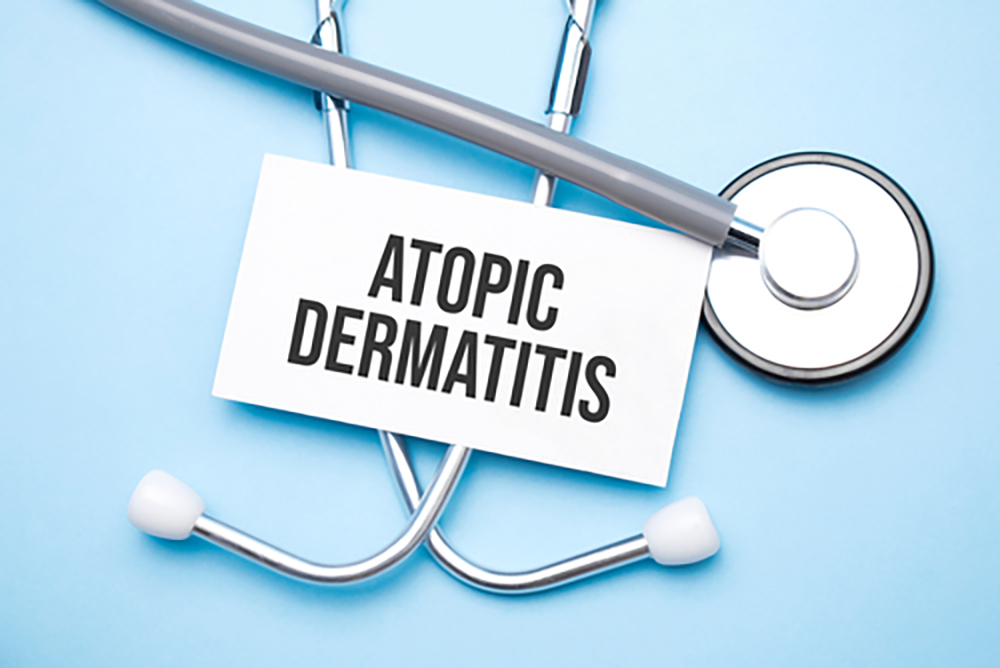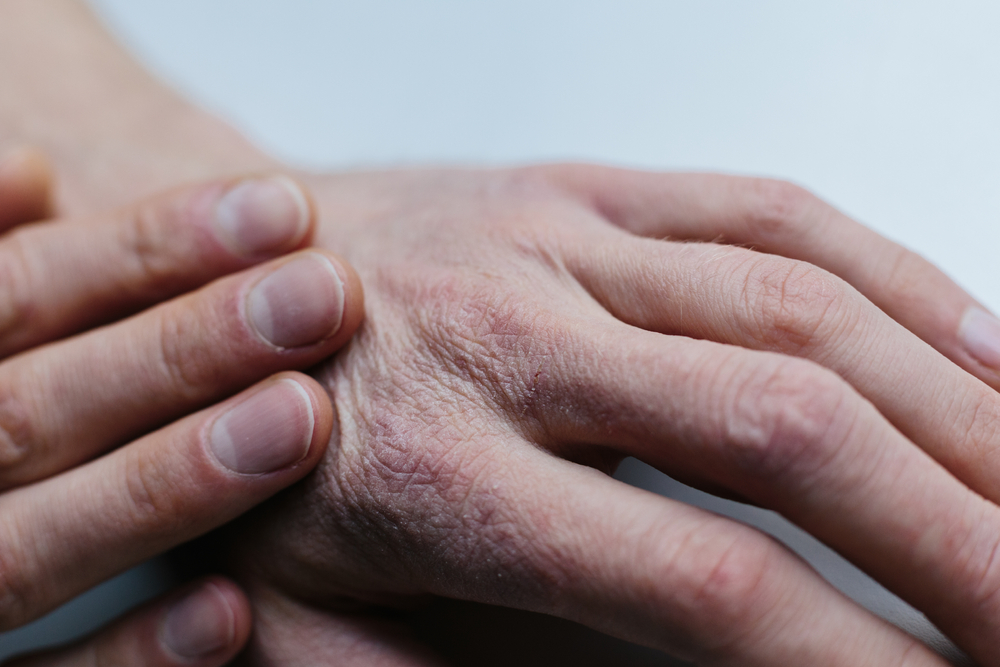The Pathogenesis of Atopic Dermatitis: Key Roles of Cytokines and Therapeutic Targets

The pathogenesis of atopic dermatitis (AD) is influenced by immune dysregulation, barrier dysfunction, and pruritus. Various immune cells, including Th2 cells, type 2 innate lymphoid cells (ILC2s), and basophils, produce Th2 cytokines (IL-4, IL-5, IL-13, IL-31) in lesional skin. Alarmins like TSLP, IL-25, and IL-33, from keratinocytes, amplify type 2 inflammation. In chronic AD, Th22 and Th17 cells further suppress filaggrin expression, worsening barrier function. Treatments like dupilumab (IL-4/IL-13 inhibitor) and nemolizumab (IL-31RA inhibitor) show efficacy in moderate-to-severe AD.
Global Study Reveals Treatment Patterns and Burden of Moderate-to-Severe Atopic Dermatitis

Researchers of the MEASURE-AD study delved into the global landscape of treatment patterns and the multifaceted burden experienced by patients with moderate-to-severe atopic dermatitis (AD). Conducted across 28 countries, the study enrolled patients receiving or eligible for systemic therapy, focusing on outcomes such as the Worst Pruritus Numeric Rating Scale and the Dermatology Life Quality Index. Findings revealed widespread medication usage, with a significant portion of patients utilizing systemic therapies like dupilumab, systemic glucocorticoids, and methotrexate.
The Complex Impact of Diet on Atopic Dermatitis

In a study, researchers analyzed the pathophysiology of atopic dermatitis (AD), which involves genetic and environmental factors, including diet. Maternal dietary restrictions during pregnancy and lactation, as well as the use of hydrolyzed formulas and the delayed introduction of solid foods, have been studied but show no clear beneficial effect in preventing or treating AD. Conversely, exclusive breastfeeding for 3-4 months, diets rich in fruits and vegetables, and prebiotics might offer some benefits. Various dietary interventions have been explored, including eliminating certain foods and supplementing with omega-3 or omega-6 fatty acids, but these strategies have produced inconsistent results.
Study Reveals Gender Disparities in Atopic Dermatitis Symptoms and Impact on Quality of Life

A study involving 1,011 adolescent and adult patients from Germany and Switzerland highlighted significant gender differences in patients with atopic dermatitis (AD). Researchers discovered that while male patients exhibited more severe objective symptoms of AD, such as higher scores on the SCORing Atopic Dermatitis test and greater affected body surface area, female patients reported more severe subjective symptoms and equal impairments in quality of life. This discrepancy between objective and subjective measures of AD severity raises questions about sex-associated differences in the condition, which are currently not well understood.
Study Shows Climate Change’s Impact on Atopic Dermatitis, Urges In-depth Research and Dermatological Action

A literature review conducted on climate change and atopic dermatitis (AD) reveals that climate change significantly affects atopic dermatitis (AD), influencing its prevalence, severity, and healthcare needs. The study examines the impact of ten climatic hazards and finds a mixed, but generally negative, impact on AD across different regions. The review, involving a multidisciplinary team, underscores the inconsistency of climate impacts on AD, with some areas like South Korea and the United States showing increased AD cases related to climatic events, while other studies show no clear link.
The Burden of Atopic Dermatitis: Implications for Healthcare Decision-Makers

Researchers of a review highlighted the often-overlooked burden of atopic dermatitis (AD) in adults, shedding light on its clinical, economic, and humanistic impact. Through a systematic literature review encompassing a wide range of studies, including clinical, economic, and humanistic parameters, the researchers aimed to quantify the comprehensive burden of AD on adults and adolescents from 2011 to 2020.
Study: Itch in Atopic Dermatitis Strongly Linked to Patient-Reported Outcomes

The TREATgermany disease registry studied 1,134 patients with moderate-to-severe atopic dermatitis (AD) with Scoring Atopic Dermatitis (SCORAD) >20 from German clinics and practices. The findings revealed that 97.2% of patients experienced itch, and its severity was moderately correlated with AD severity scores. Notably, itch had a stronger connection with patient-reported outcomes, like self-reported disease severity and quality of life, compared to physician-assessed objective measures.
Understanding the Impact of Atopic Dermatitis on Patients’ Lives

In this discussion, Shawn Kwatra, MD, and Peter Lio, MD, address the challenges of atopic dermatitis in both adults and children, particularly the impact of itch and pain on patients’ quality of life. Sleep disturbance is a significant concern affecting mental and physical well-being and daily functioning. While they recognize some differences between adult and childhood onset, they highlight the overall similarities in the conditions.
Exploring Infectious Complications in Atopic Dermatitis: Key Factors and Prevention Strategies

Authors of a review examined infectious complications in atopic dermatitis (AD). Key contributing factors identified include skin barrier defects, type 2 inflammation, Staphylococcus aureus colonization, and cutaneous dysbiosis. Prevention strategies for AD-related infections prioritize skin barrier enhancement and anti-inflammatory treatments. Additional research is required to establish the appropriate use of antibiotics in AD exacerbations, given the significant comorbidity of infectious complications.
Unpacking the Complexities of Severe Eczema: Infections, Allergies, Asthma, and More

A medically-reviewed article from WebMD analyzed the complications of severe eczema. Beyond itchy skin, severe eczema brings risks of infections, allergies, and asthma, as well as sleepless nights, fatigue, and even depression. Adults face isolation, eye problems, and job disruptions due to the condition. Long-term health concerns like heart disease may be linked, though research continues.

